Mom Pushes Fundraiser for Daughter’s Africa Trip, Frustrated by Slow Donations
But it can feel like a particularly unseemly social dilemma when encouraged by a colleague with money, money and then some. This comes with a great deal of pressure, for a poorly conceived cause, and no thanks to people who support it, but it is, at least tentatively charitable or meaningful, and trying to do more good than harm.
The barrage of private messages, Facebook posts, park signs — and even posters all over town — has made a simple “no” a nightmare for one part-time worker. She doesn’t want a confrontation or any drama, but her refusal is both moral and practical. But how do you deal with an overzealous fundraiser and not come out looking like a jerk, while also ensuring you adhere to your values?
Parents want the best for their kids, but their enthusiasm can sometimes come across as pushy or excessive

Especially when they want others to contribute to their child’s success
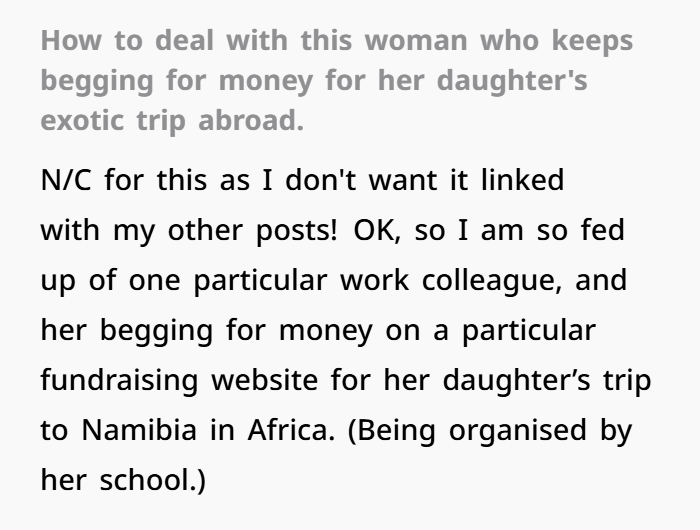
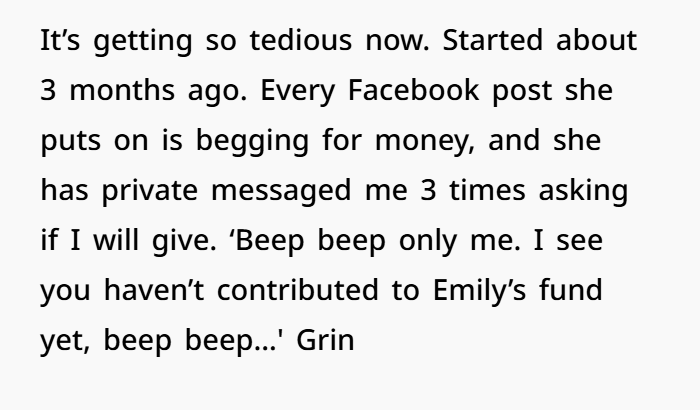
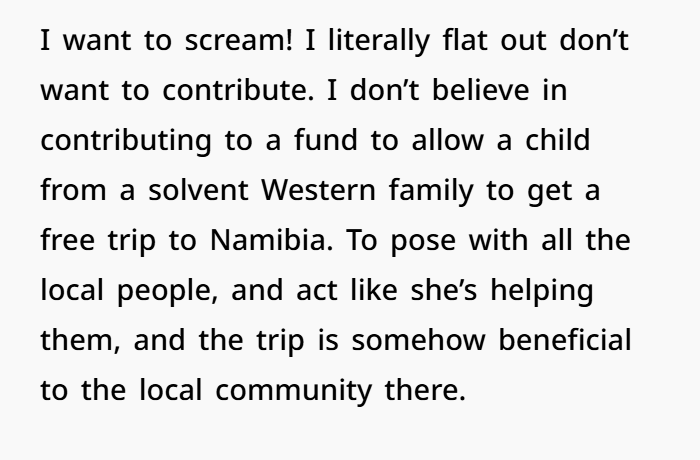

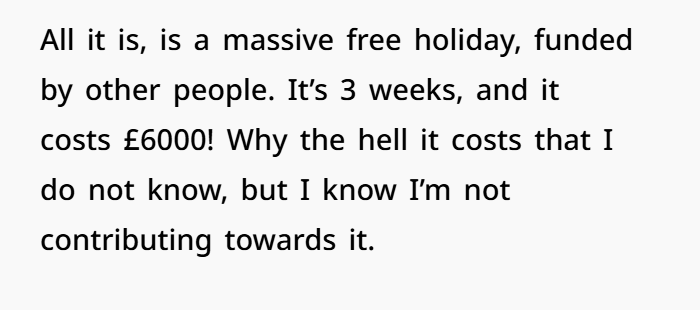
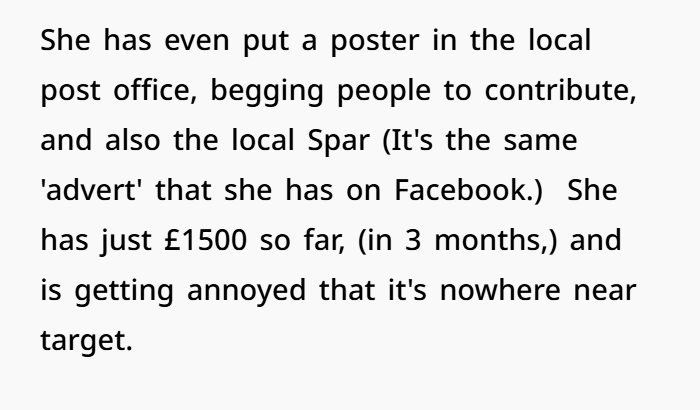
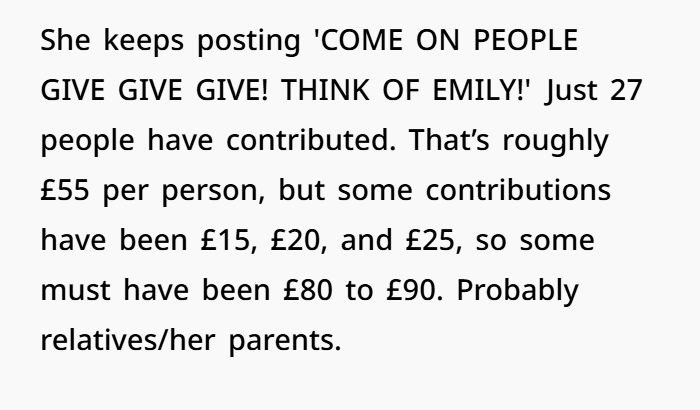
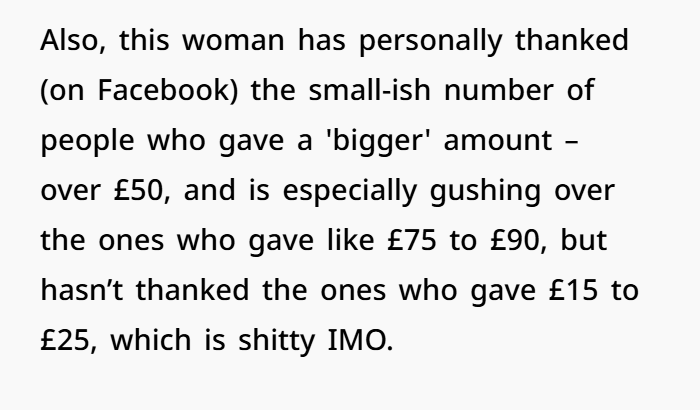
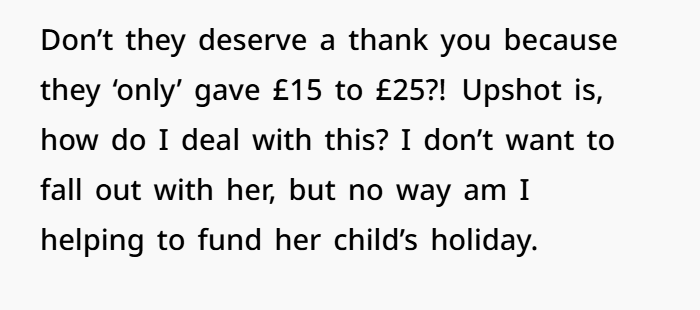
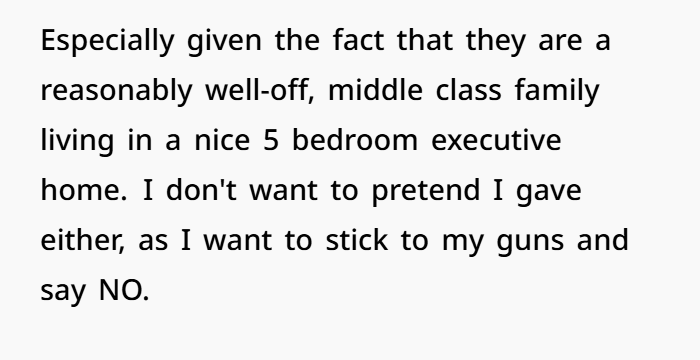
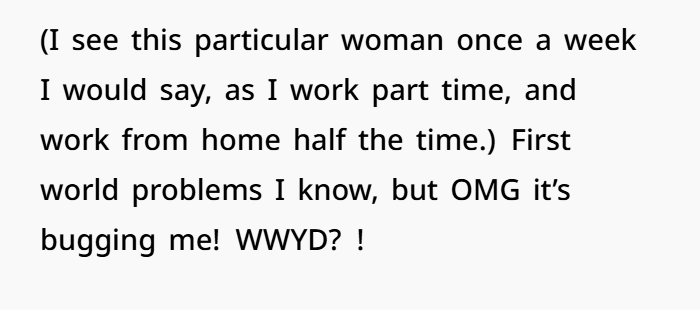
Navigating Pushy Fundraisers with Professionalism and Boundaries
1. Understanding the Social Pressure of Fundraisers
In work environment, group fundraising often has hidden expectations. According to her study with Charities Aid Foundation, less than 50% of their donors are contributing due to really caring about the cause, and nearly half of the donors are contributing with the social pressure. When a colleague demands input in support of a pet project that no one else aligns with regarding necessity or impact, this can cause friction.
In this instance, an organized school trip to a posh location under the guise of community service, it is the morality of the experience. Skeptics of such initiatives, including a report-levelled similar criticism at a an unconnected program in an article published by The Guardian, say these trips serve more to meet the needs of participants at the expense of those they claim to be helping.
It can be frustrating to feel pressured into donating, particularly when the actual fundraiser seems more self serving than altruistic. You are not the only one who is pushing back.
2. Strategies for Declining Without Drama
If you want to avoid donating while keeping the peace, there are a few strategies to set boundaries politely:
- Use Firm but Polite Language: When your colleague messages you next, shoot back with something along the lines of:— Hi [Name] Thanks for reaching out — I decided to donate to causes I care about personally and to keep my charitable contributions focused. Sending best wishes to Emily for her travels!’
This makes your stance clear without being confrontational. - Draw a Boundary About Workplace Solicitations: If she oversteps, talk to her directly, but in a professional manner! A few examples: “Can we keep our work conversations at work? As long as I am working, I DO NOT want to be asked for donations.”
- Ignore Non-Personal Appeals:No need to respond if this is for a Facebook post or a poster. Social media is conducive to broadcasting but the engagement is optional.

3. Understanding the Bigger Picture
This is more than about money; it is about social dynamics and dealing with people (especially co-workers) who are oblivious to how over-the-top they often are. Fundraisers who are too pushy can lose people by not respecting their boundaries or realizing their priorities differ from theirs.
Resolving disputes is a process of balancing personal values with workplace diplomacy. You chose not to contribute because you care more about (insert your charitable giving priorities here, or you are saving for that farm in Alaska, or you just have no desire to be in a room where that is being discussed). As University of California psychologists point out, sticking to your principles translates into less long-term resentment and guilt over social obligations you do not agree with.
4. Managing Guilt and Handling Group Perceptions
One challenge in saying no is the potential guilt or fear of judgment from colleagues. However, it’s worth remembering:
- Fundraising is inherently voluntary. No one is entitled to your money.
- Your decision doesn’t reflect on your character; it reflects on your priorities.
- Many colleagues likely feel the same way but may lack the confidence to say no.
If her public praise of large donors adds to the guilt, remind yourself that true gratitude doesn’t hinge on the size of the contribution. Gratitude is about acknowledging effort, not ranking generosity.
5. Long-Term Solutions for Workplace Solicitation
To prevent similar situations in the future:
- Establish a Workplace Policy: Suggest to HR or management that a policy be created limiting workplace solicitations to ensure no one feels pressured.
- Encourage Neutral Platforms: Recommend that fundraising efforts be shared on community boards or email lists, leaving participation entirely optional.
As the story went viral, its author provided more information in the comments

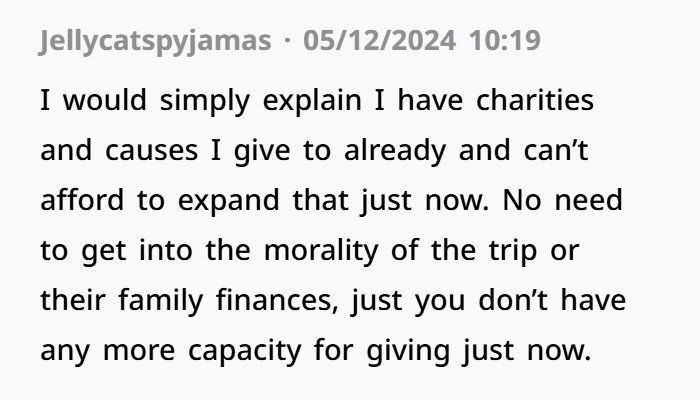
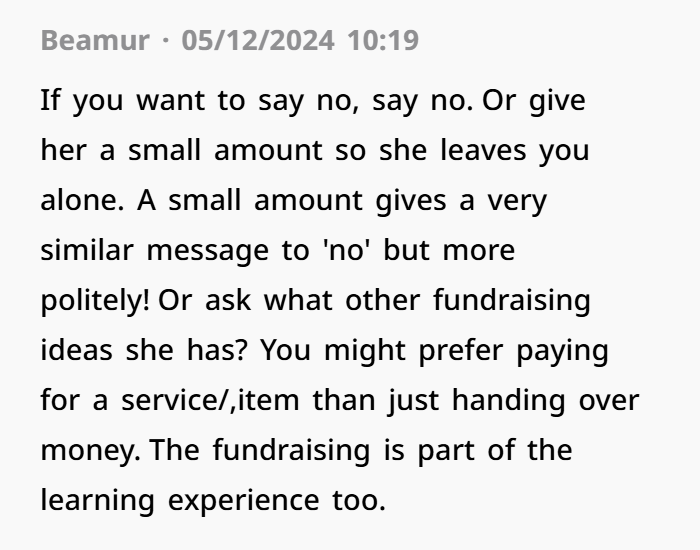
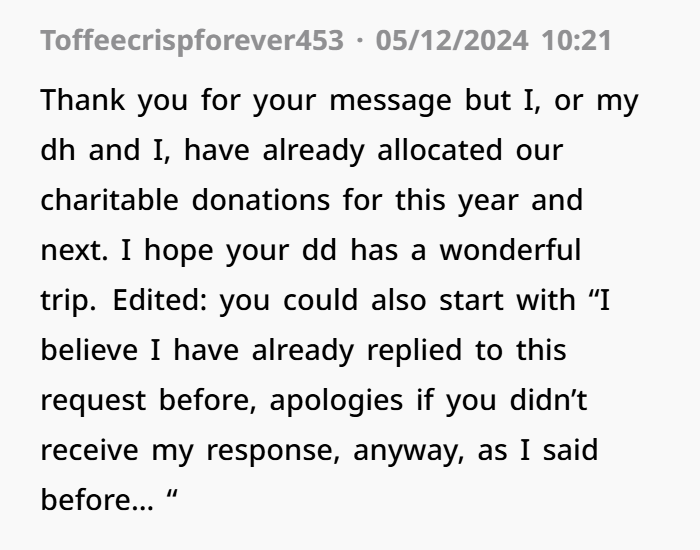
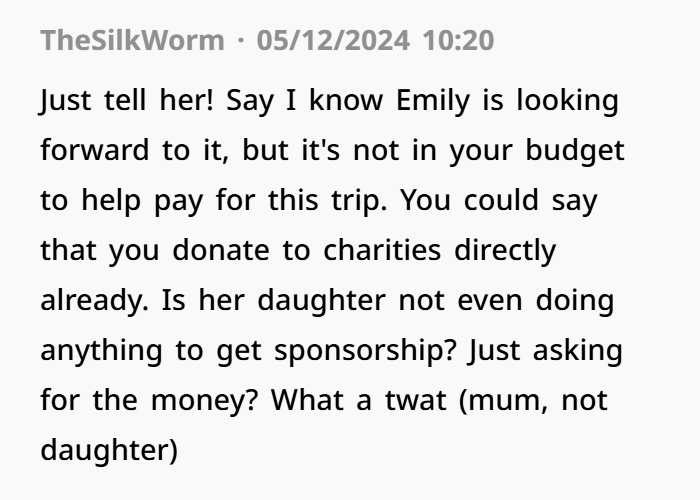
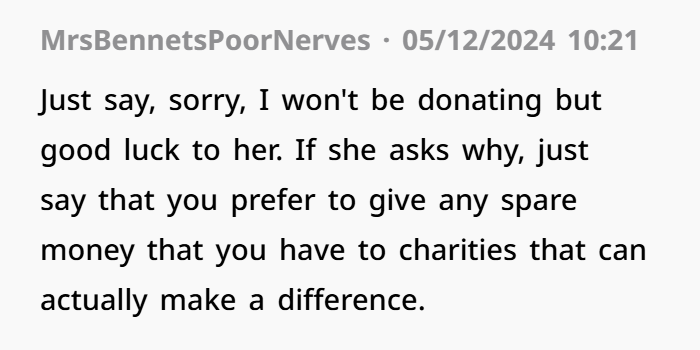
A pushy colleague has hit you up for a fundraiser — respond with tact, with a firm line, and — if it comes to it — with pride in your personal priorities. You might feel like getting involved with the agenda is the easiest thing to do but holding true to the values and striving for professionalism will yield greater peace of mind over the long haul. Also, you never owe someone money to help them pay for their high-end vacation, particularly when that high-end vacation is to an ideological region that you disagree with. Saying no politely and respectfully might sting at that moment, but its better than dragging that feeling for weeks and alienating parties from the start of being boundary assertive.

